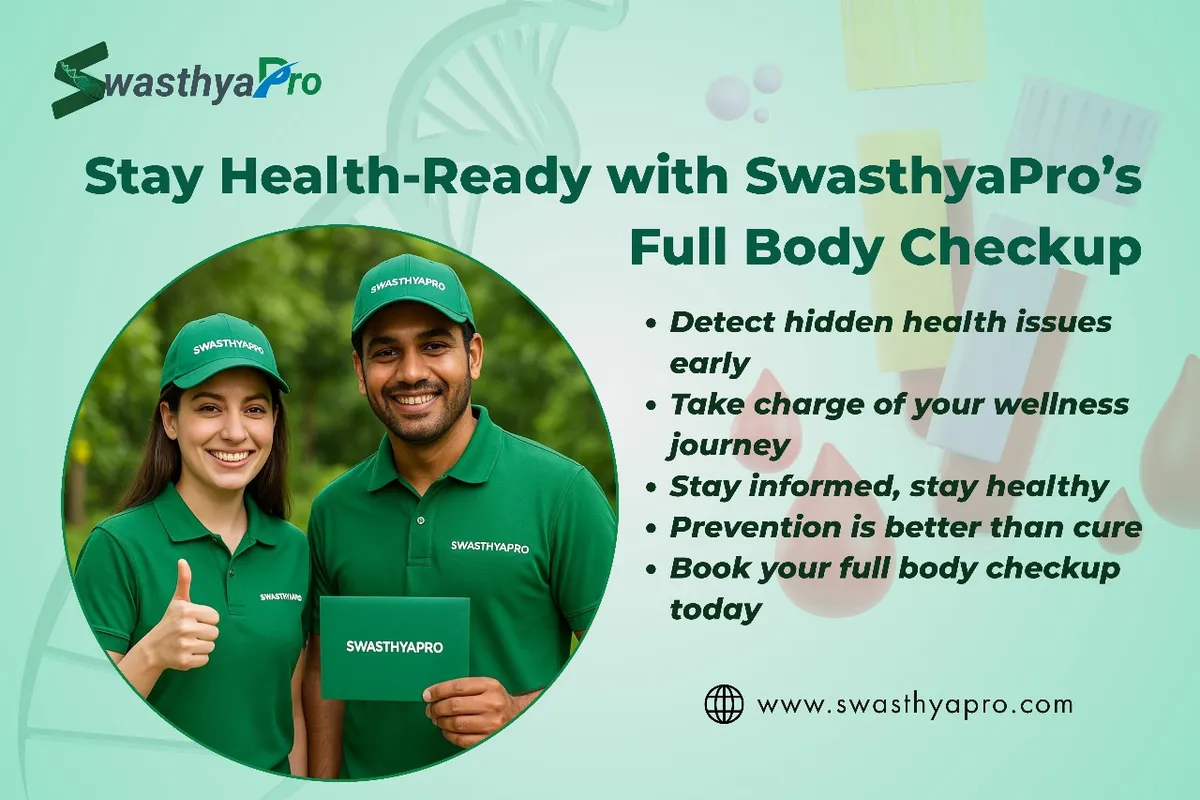Questions to Ask After Your Full Body Checkup

Getting a full body checkup is a smart step toward taking control of your health. But once the tests are done and the reports arrive, many people simply glance through them or wait for a doctor to say, “Everything’s fine.” That’s not enough.
To truly benefit from your full body checkup, you must ask the right questions. Understanding your results helps you make better lifestyle decisions and spot early warning signs before they become serious problems.
Let’s go through the most important questions you should ask your doctor after your full body checkup.
1. Are All My Results Within Normal Range?
Your full body checkup report will be filled with numbers—blood sugar, cholesterol, hemoglobin, liver enzymes, etc. It can be confusing. Ask your doctor to walk you through each section and highlight:
- Which results are normal
- Which ones are borderline
- Which ones need urgent attention
This simple question turns your report into a clear map of your health.
2. Is There Anything I Should Be Worried About?
Even if everything looks “mostly fine,” there could be early signs of something developing. A full body checkup often uncovers small issues that, if ignored, can grow into big problems.
For example:
- Slightly elevated blood pressure
- Pre-diabetic sugar levels
- Mild vitamin deficiencies
Ask if there’s anything that needs to be watched over time.
3. Do I Need Additional Tests or Scans?
Sometimes, a full body checkup leads to follow-up tests. This doesn’t always mean something is wrong—just that your doctor wants a closer look.
For instance:
- An abnormal ECG might need an echo test
- Unusual liver readings could require an ultrasound
- High cholesterol may call for a heart risk assessment
Always ask if further investigation is needed based on your results.
4. How Can I Improve My Current Health Status?
A full body checkup isn’t just about disease—it’s also about optimization. Ask your doctor:
- What should I change in my diet?
- How much exercise is recommended for me?
- Are there lifestyle habits I should stop or start?
These questions help you turn your full body checkup into a personal health action plan.
5. Do I Need to Start Any Medications or Supplements?
Some full body checkup reports show vitamin D deficiency, low iron levels, or high uric acid. In these cases, the doctor might suggest supplements or medications.
Ask about:
- How long you need to take them
- Possible side effects
- Natural alternatives, if any
6. How Often Should I Get a Full Body Checkup?
The answer depends on your age, lifestyle, and results. Ask your doctor how frequently you should repeat the full body checkup.
- Once a year is standard for most adults
- Every 6 months if you're managing a condition
- Once in 2 years if you’re young and healthy
Your checkup frequency should fit your personal health needs.
7. Are There Any Warning Signs I Should Watch Out For?
Your full body checkup might show you’re okay today, but what if something changes tomorrow?
Ask your doctor what symptoms or warning signs—like fatigue, dizziness, weight changes, or pain—you should never ignore based on your test results.
8. Should My Family Members Also Get a Full Body Checkup?
Health issues like diabetes, heart disease, and high cholesterol often run in families. If your full body checkup shows any such risk, it might be wise for your parents, siblings, or children to get screened too.
Ask whether your results have any hereditary links worth checking in others.
9. What Do These Medical Terms Mean?
Full body checkup reports can feel like they’re written in another language. ALT, HDL, TSH, creatinine... what does it all mean?
Don’t hesitate to ask your doctor to explain every term you don’t understand. It’s your health, and you deserve clarity.
10. What Are My Next Steps?
Finally, ask: “What should I do now?”
Based on your full body checkup, your doctor should give you a clear follow-up plan. Whether it’s seeing a specialist, starting a new routine, or just coming back in a year—it helps to have direction.
A full body checkup is just the beginning of your health journey—not the end. The real value comes from what you do after the report arrives. Don’t treat your checkup like a one-time event. Ask, learn, and act.
The more you understand your full body checkup, the better you’ll be at taking care of yourself. These conversations with your doctor are not just helpful—they could be lifesaving.
So, the next time you get a full body checkup, bring your curiosity with you. Ask these 10 questions and walk out with more than just a paper—you’ll leave with power.